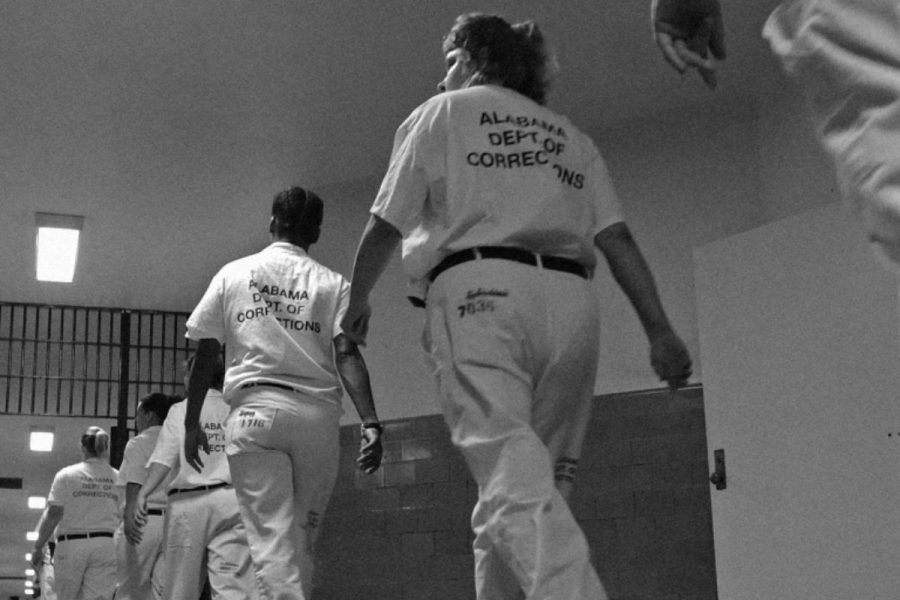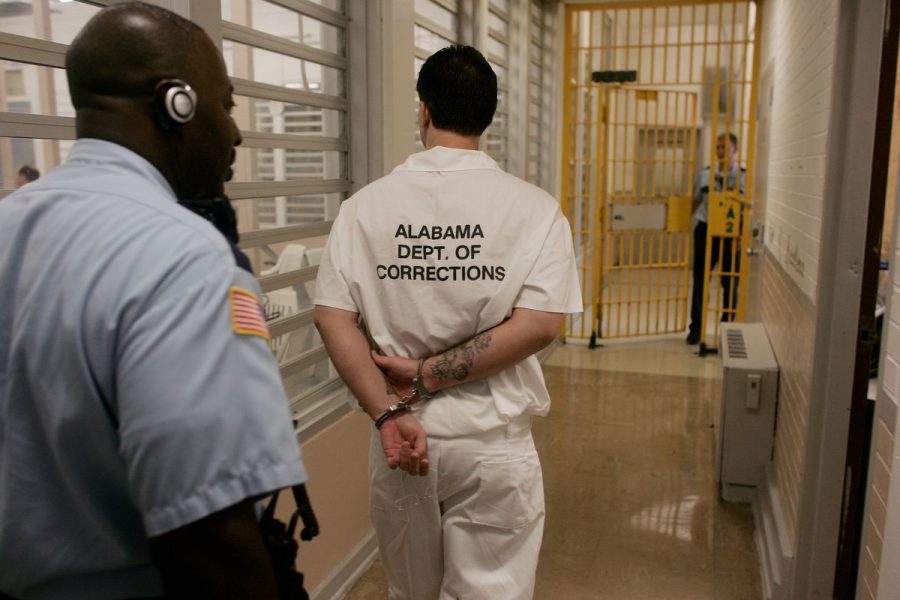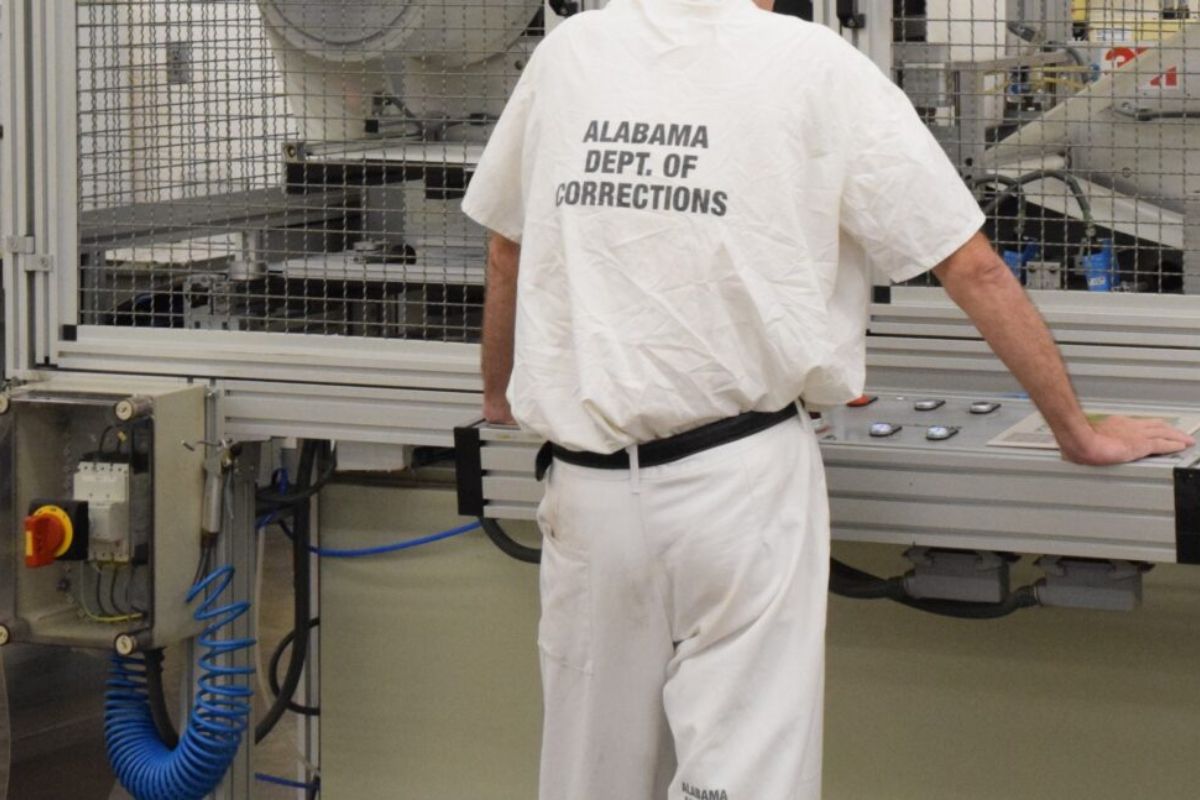Alabama’s Alleged Forced Prison Labor: The alleged use of forced prison labor in Alabama has sparked a federal debate on the ethical and legal ramifications of this practice within the state’s correctional facilities. A lawsuit highlighting the similarities to historical slavery has drawn national attention, raising questions about the treatment of inmates and their labor practices.
Allegations of disproportionately denying parole to Black inmates and violations of inmates’ rights underline the complexity of the situation. The counsel and court decisions further deepen the discourse on this controversial issue, shedding light on various perspectives and implications.
The ongoing discussions reveal a multifaceted debate that encompasses broader issues within the criminal justice system.
Lawsuit Alleges Use of Slave Labor in Alabama State Prisons
The lawsuit alleging the use of slave labor in Alabama state prisons has brought national attention to the issue of forced labor within the state’s correctional facilities. The case, heard in a federal court in Alabama, has sparked a significant debate on the ethics and legality of such practices. Plaintiffs argue that the state’s prison system engages in what they consider to be ‘forced labor,’ a term laden with historical connotations and moral implications.
At the center of the debate is Alabama’s practice of utilizing inmate labor for various tasks, including agricultural work and manufacturing, often for little to no pay. Critics of this system argue that it exploits incarcerated individuals, subjecting them to conditions that resemble those of historical slavery. The hearing, presided over by U.S. District Court Judge Corey Maze in Montgomery, signifies a critical moment in the ongoing discussion surrounding prison labor practices and the treatment of inmates within the state’s correctional facilities.

ALSO READ: Alabama’s Controversial Monument Park Sparks National Debate
Allegations of Violations of Inmates’ Rights
Allegations have surfaced regarding violations of inmates’ rights within Alabama’s state prisons, particularly focusing on disparities in parole decisions between Black and white inmates. Plaintiffs in the case argued that the state prisons breached the rights of both current and former inmates under the 14th Amendment’s equal protection clause.
They specifically accused Alabama of disproportionately denying parole to Black inmates compared to white inmates, highlighting alleged racial bias in the parole decision-making process. This accusation underscores concerns about potential systemic inequities within the state’s criminal justice system, raising questions about fairness and impartiality in parole determinations.
The allegations of racial disparities in parole outcomes have ignited discussions about the need for greater transparency and accountability in the state’s correctional facilities. As the debate unfolds, advocates for reform are calling for a thorough investigation into these allegations to make certain that all individuals, regardless of race, are treated fairly and in accordance with constitutional protections.
Claims of Unlawful Denial of Parole and Work-Release Programs
Amid the scrutiny surrounding allegations of racial disparities in parole decisions, concerns have now been raised regarding the alleged unlawful denial of parole and access to work-release programs for inmates in Alabama. The lawsuit contends that these practices have disproportionately affected Black individuals, leading to a skewed racial composition within the incarcerated population and potentially extending the duration of their punishment for past offenses.
Key Points:
- Disproportionate Impact: The allegations suggest that Black inmates are being unfairly denied parole compared to their white counterparts, contributing to a disparity in the treatment of different racial groups within the criminal justice system.
- Denial of Opportunities: The claimed denial of access to work-release programs further restricts inmates from reintegrating into society and gaining valuable skills for their eventual release.
- Increased Sentencing: By allegedly prolonging the incarceration of certain individuals through unlawful parole denials, the system may be effectively imposing additional punishment beyond what was originally mandated by law.
- Systemic Consequences: These practices not only affect individual inmates but also have broader implications for the overall fairness and equity of the criminal justice system in Alabama.

Arguments from Counsel and Court’s Decision
In the ongoing legal debate surrounding Alabama’s alleged forced prison labor practices, counsels presented contrasting arguments regarding the use of risk assessments in parole decisions and the discretion of the parole board. Counsel for the plaintiffs highlighted the importance of utilizing risk assessments effectively to address any potential racial biases in the parole process.
They advocated for the release of eligible individuals for parole and sought monetary compensation for those impacted by the purported forced labor practices. On the other hand, the state’s counsel contended that the parole board retains the authority to exercise its discretion in making parole determinations, emphasizing that neither the governor nor the attorney general possesses the power to interfere in these decisions.
News in Brief
Federal debate ensues over alleged forced prison labor in Alabama, drawing parallels to historical slavery. Lawsuit spotlights disparities in parole decisions, particularly affecting Black inmates. U.S. District Court hearing in Montgomery intensifies discourse on ethical and legal aspects. Plaintiffs argue for fair treatment and compensation, emphasizing systemic concerns. Defense asserts parole board’s discretion and opposes external intervention. Discussions underscore broader issues within the criminal justice system, urging transparency and reform.
Our Reader’s Queries
How much money did Alabama make 450 million annually from convict leasing?
Current and former inmates take legal action against Alabama, alleging forced labor in fast food joints, meatpacking plants, and city offices, while officials reap $450 million from “convict leasing.”
What was the convict leasing system in Alabama?
From 1875 to 1928, Alabama benefited from the convict-lease system, akin to slavery. Companies paid the state for prisoner labor. Conditions were perilous, leading to high death rates among inmates.
What is the parole lawsuit in Alabama?
Inmates, proving their parole readiness through years of job participation in work release programs, seek federal court intervention against Alabama’s alleged racially biased and unconstitutional parole policies.

